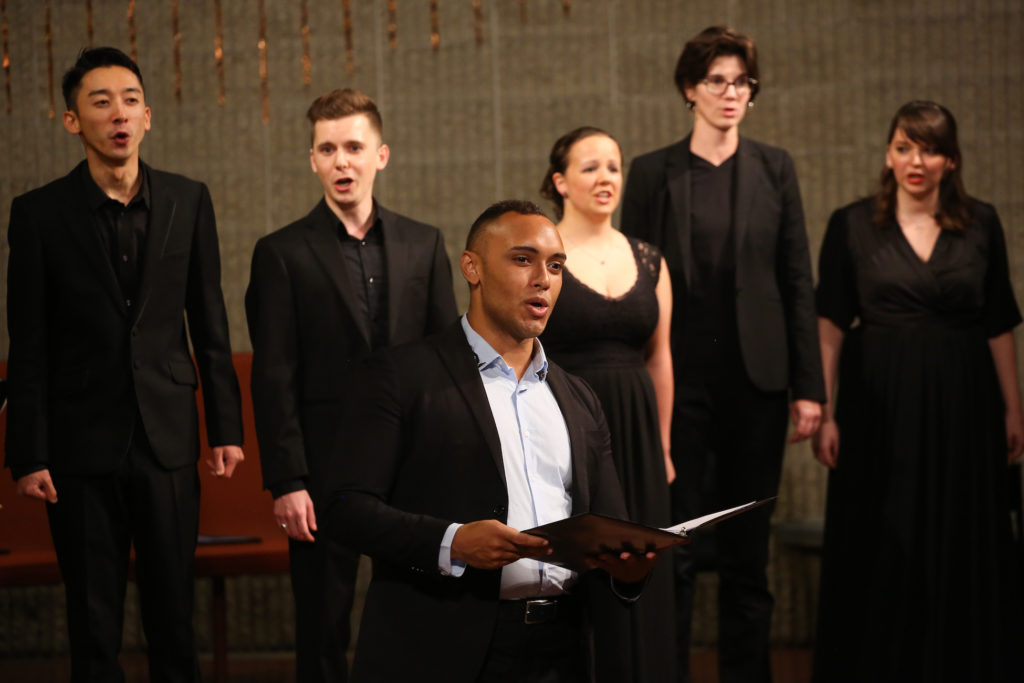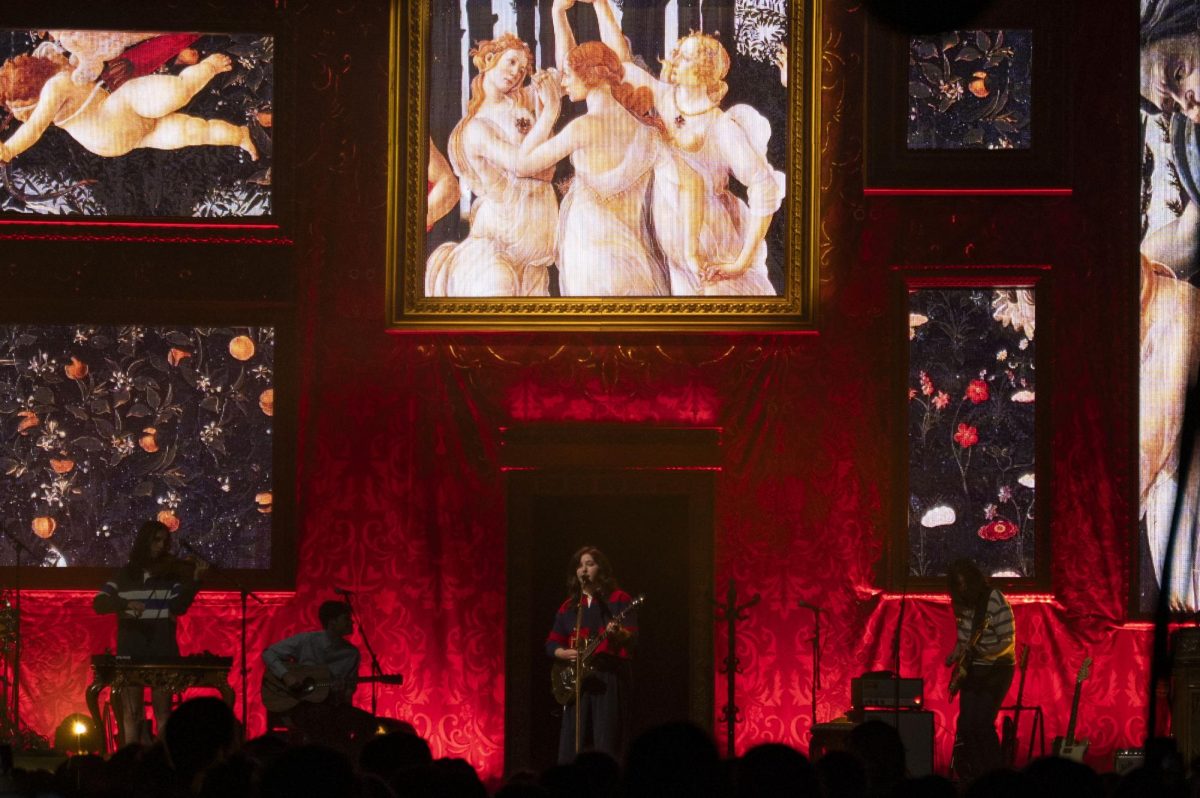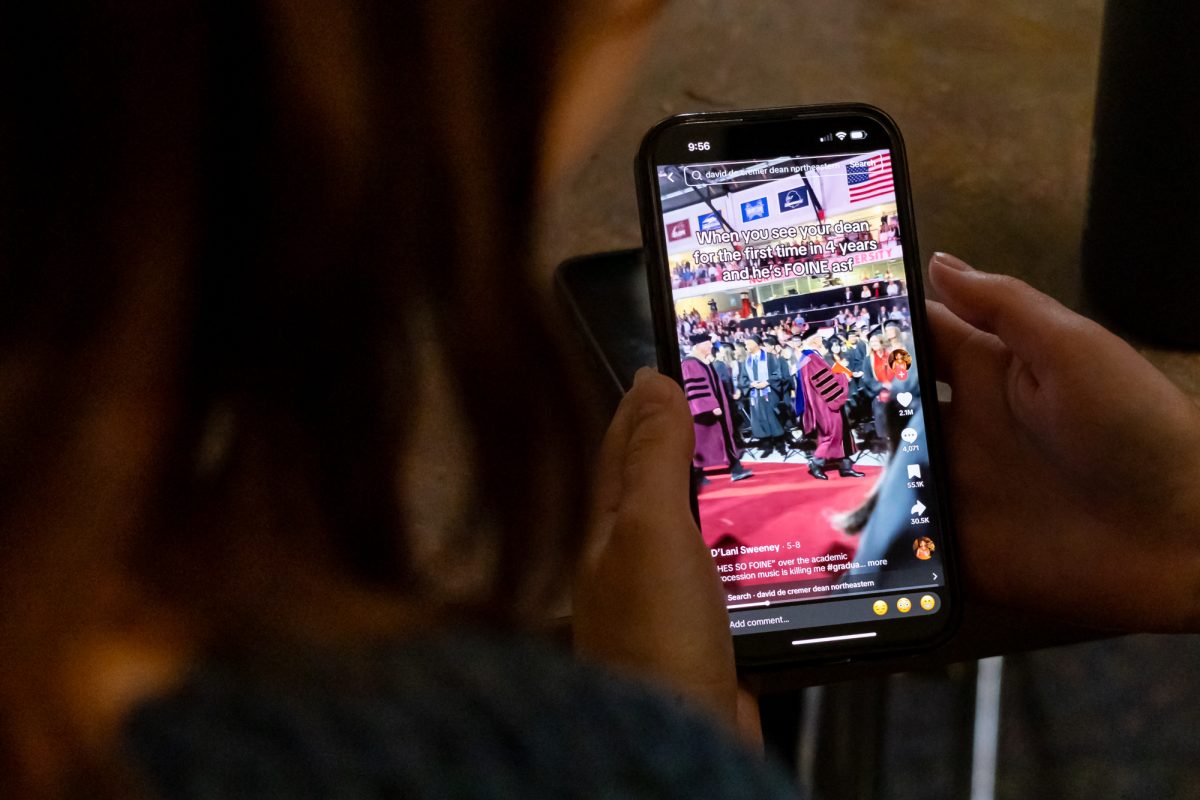By Leslie Hassanein, news staff
It seems as though everyone nowadays has something to say about the upcoming presidential election. The Boston Camerata, an early music ensemble that has been playing around the world since 1954, offered its commentary on the election in the musical op-ed, “City of Fools: Medieval Songs of Rule and Misrule.”
The show explored the themes of corruption and justice through ancient minstrel songs in an effort to draw parallels to the 2016 election. The 90-minute piece was performed on Saturday at First Church in Boston and received a standing ovation.
“I absolutely adored the show,” Carol Richardson, an attendee from Framingham, said. “There was a lot of talent here this evening.”
Audience members were handed the lyrics to each song, as well as a translation, with their playbills as they were seated. They outlined stories of “a city of lunatics,” antagonistic rulers and a church of greed. After the chaotic tales, one of the songs performed asked the universe for mercy, claiming that living in such a world was not voluntary.
“We hope hearing how corrupt rulers were mocked will give us some perspective,” director Anne Azema, said in a press release.
The final song of the show required audience participation. Audience members, who were handed ballots along with their playbills, were asked to vote. A “yay” vote meant the world would get better, and a “nay” vote would allow the corrupt and distasteful rulers to remain in power. Needless to say, the audience opted for a positive outcome, and the Camerata performed a joyful tune.
“It was great to see such an engaged public, to see everyone leap to their feet at the end,” Azema said. “Voting on the concert’s end was a first in our performing history, and we liked the public’s choice.”
Azema, a French-born vocalist, started singing as a child and has always had an eye for production. She has created 12 new productions since assuming the position of Camerata director in 2008. She created part of the program of City of Fools in the 1990s for a recital CD, “Provence Mystique.” Since then, it has been performed around the globe and was revisited for this election season.
“I believe [the show’s relevance] is up to the audience to decipher,” Azema said. “I’ve done my job well by reading the texts and experiencing the performances. It should be apparent how these 12th and 13th century music and texts mirror our own 2016 experiences.”
The songs – 13th century satirical works of France, Providence and Germany – were performed almost entirely in French, German and Latin, with the exceptions of a few short explanations given by Joel Cohen, the show’s narrator and a former leader of the Camerata from 1969 to 2008.
Cohen drew pieces from the material to compare to candidates in today’s election, like King Mark, who is described in the translation as a “miserable, frail, old man.”
“The basic stuff is in there already,” Cohen said. “You just need to push it a little.”
Besides the comical explanations and voice talents of Cohen, the Camerata sported known and rising talents. The show opened with Shira Kammen, a world-renowned, multi-talented and multi-instrumental artist, playing the vielle. The chorus consisted of students from the Longy School of Music of Bard College.
Vocal soloists included Jordan Weatherston Pitts and Azema, the director of the Boston Camerata since 2008.
“Working with the Camerata has been a great experience,” Pitts said. “My favorite song to perform was the last one in the show.”
Pitts, a graduate of Boston University, enjoyed participating in the performance.
“It’s always a pleasure to work with Anne,” Pitts said. “It’s a great learning experience, and I love working with so many talented musicians.”
Photo by Dylan Shen









